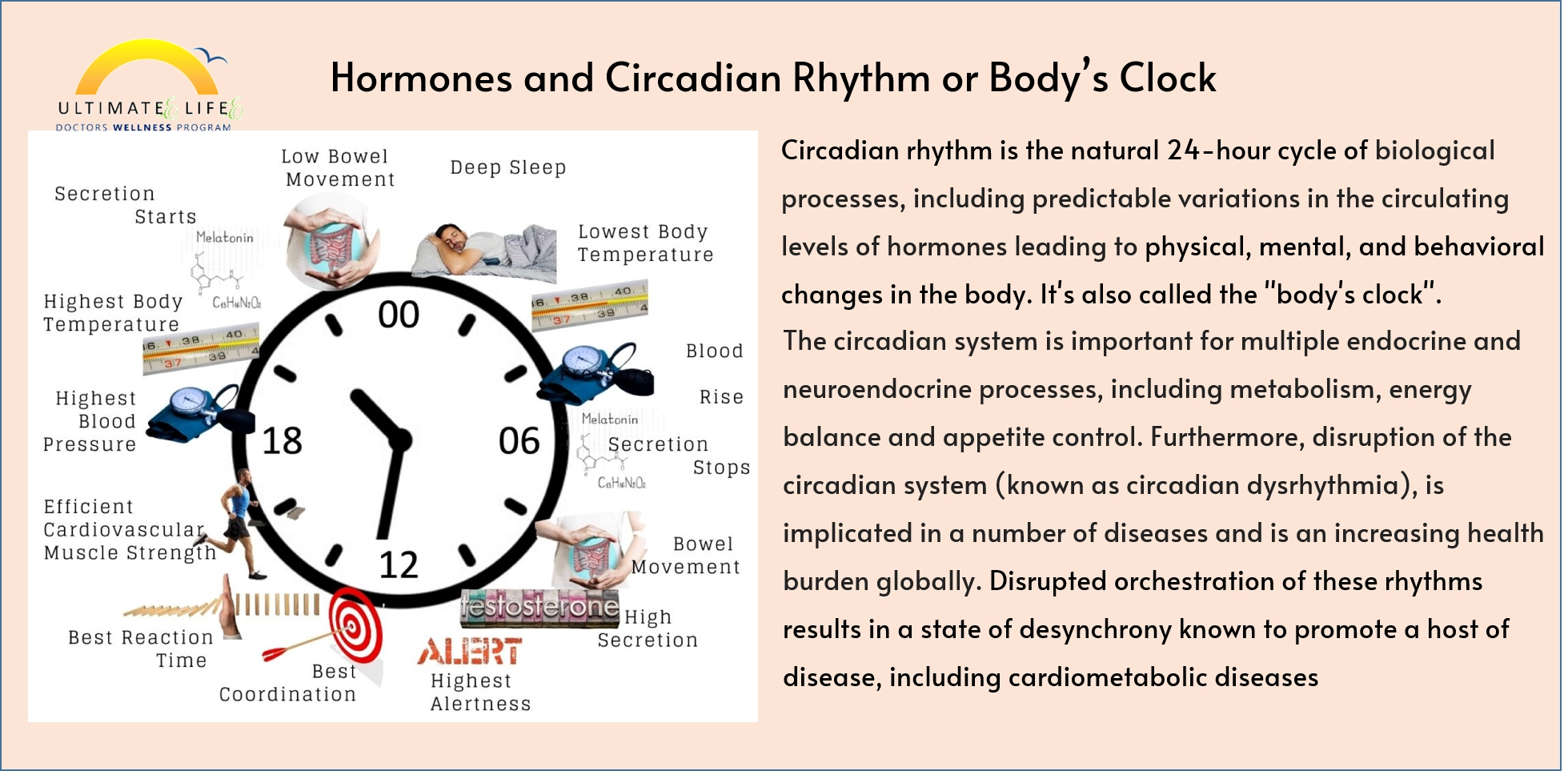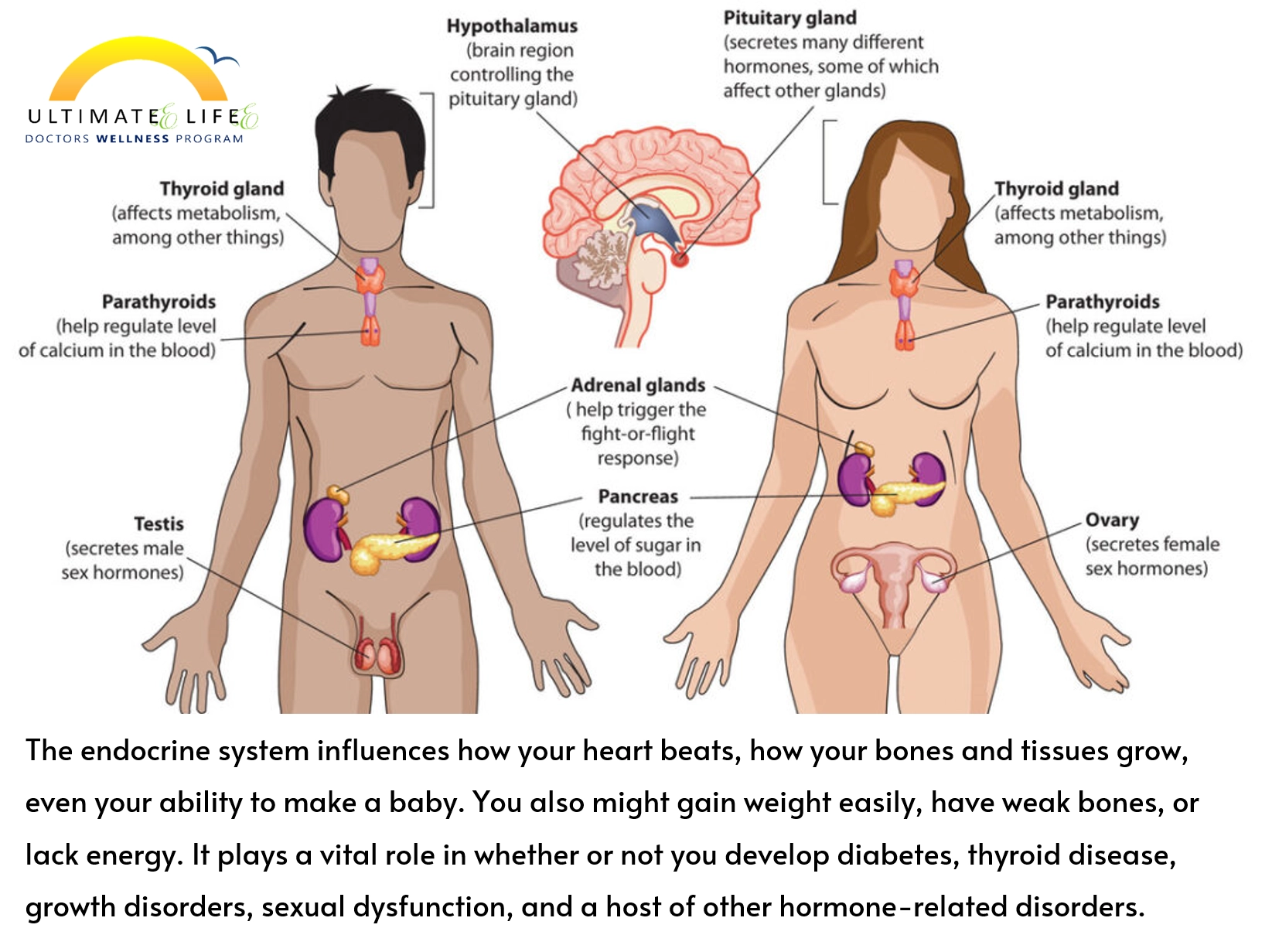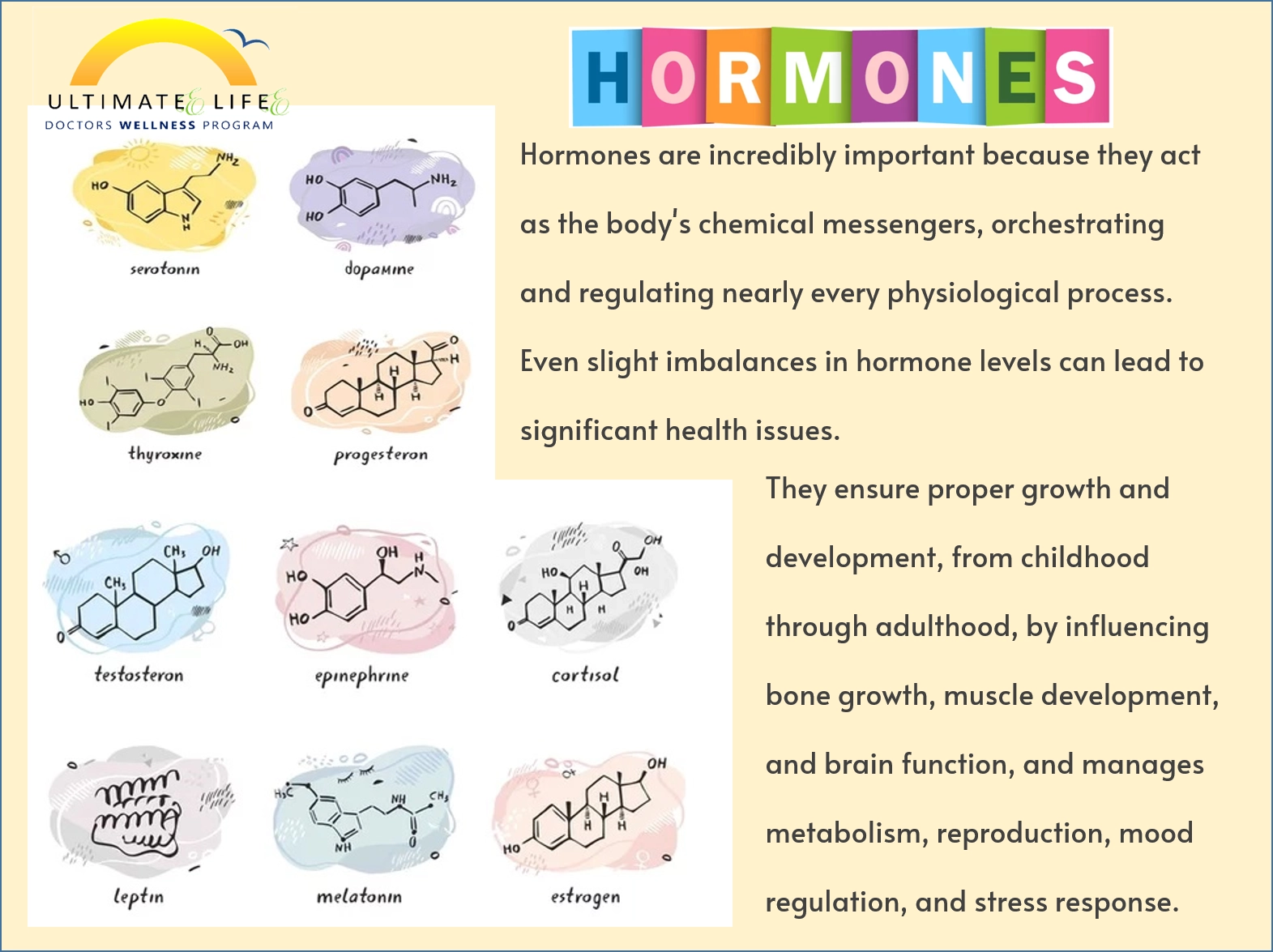Endocrine Health

SHALL YOU BLAME IT ON HORMONES!
It’s an economic boom but it is silently taking a heavy toll on the population. As we are moving to a 24-hour work cycle due to rapid development in many sectors such as IT, hospitality, health care and others, imbalanced endocrine functions as a result of increasing work pressure, erratic meal timing, daytime sleep and night-time work are set to increase.
A rising sedentary lifestyle is leading to health issues such as chronic fatigue, dizziness, disturbed sleep and unnatural weight gain. All these could also be symptoms of hormonal imbalance in the body.
Osteoporosis, Diabetes, Heart Problems were considered age-related disorders but Modern lifestyles is triggering a wave of accelerated ageing, with hormonal decline and associated disorders being manifested at much earlier ages.
The endocrine system is the body’s communication network. It is made up of specialised glands, which make and release hormones into the blood. The endocrine system is in-charge of creating and releasing hormones to maintain countless bodily functions.
The endocrine system influences how your heart beats, how your bones and tissues grow, even your ability to make a baby. It plays a vital role in whether or not you develop diabetes, thyroid disease, growth disorders, sexual dysfunction, and a host of other hormone-related disorders.
There are 50 hormones, which are the body’s chemical messengers and they are made by 12 different Endocrine glands.
Hormones are chemical messengers that travel through the blood to different parts of the body. They are signals that tell the body to act in a certain way for optimal functioning. Hormones control a range of different functions in the body.
The endocrine system regulates:
- Bone and muscle health
- Heart function and blood pressure
- Metabolism – how foods are broken down in the body to make energy
- Sexual development
- Reproductive Health
- Fertility & Conception
- Growth and development
- Immune system regulation
- Mood
- Attention, learning and memory
- Stress responses
- Sleeping and waking cycles
- Body temperature
- Appetite and body weight

The following are key parts of the endocrine system:
Hypothalamus. The hypothalamus is located at the base of the brain. It makes hormones that control hormones released in the pituitary gland. The hypothalamus controls water balance, sleep, temperature, appetite, mood, reproductive behaviours, and blood pressure.
Pineal gland. This gland is located in the middle of the brain. It makes the hormone melatonin. This hormone helps your body know when it's time to sleep. This hormone also regulates the timing of other functions throughout the body, such as when puberty starts.
Pituitary gland. This gland is located below the brain. It is often as small as a pea. Called Master Gland because it controls many functions of the other endocrine glands.
Thyroid and parathyroid. These glands are located in front of the neck, below the voice box (larynx). The thyroid plays a key role in the body's metabolism. The parathyroid helps regulate the body's calcium balance and bone strength.
Adrenal gland. An adrenal gland is located on top of each kidney. Like many glands, these work together with the hypothalamus and pituitary gland. The adrenal glands make and release corticosteroid hormones and adrenaline (epinephrine). These maintain blood pressure and regulate metabolism.
Pancreas. This organ is located across the back of the belly (abdomen), behind the stomach. It plays a role in digestion and hormone production. Hormones made by the pancreas include insulin and glucagon. These regulate blood sugar levels.
Ovaries. A woman's ovaries are located on both sides of the uterus, below the opening of the fallopian tubes. The ovaries contain the egg cells needed for reproduction. They also make oestrogen and progesterone.
Testes. A man's testes are located in a pouch that hangs suspended outside the male body. The testes make testosterone and sperm.
Digestive system. Cells in the digestive tract secrete various hormones which modulate digestive functions, such as cholecystokinin (CCK), secretin, gastrin and ghrelin.
Thymus. This gland in the neck releases the thymosins which mature the T-lymphocytes for immune function.
Adipose tissue. Fat cells throughout the body produce the hormone Leptin. Low leptin levels encourage the body to enter ‘starvation mode’. Here it attempts to conserve energy by slowing down or avoiding all unnecessary activity, and to increase its intake of food by feelings of hunger.
When hormone levels are out of balance, the body doesn’t function normally. This is when problems or diseases can develop.

ENDOCRINE DISORDERS
Endocrine disorder happens when there’s -
- Too much hormone secretion (called "hyper" function)
- Too little hormone secretion (called "hypo" function)
Endocrine system diseases primarily arise from two causes – either a change in the level of hormone secreted by a gland, or a change in the sensitivity of the receptors in various cells of the body. Therefore, the body fails to respond in an appropriate manner to messenger signals.
Among the most common endocrine diseases is diabetes, which hampers the metabolism of glucose.
Imbalances of hormones from the reproductive system are also significant since they can influence fertility, mood, and wellbeing.
Another important endocrine gland is the thyroid, with both high and low levels of secretion affecting a person’s capacity to function optimally, even affecting fertility in women.
Hyperthyroidism, Hypothyroidism, Cushing disease, Addison disease, Adrenal fatigue, Acromegaly, Short stature in children, PCOS, Disorders of puberty and reproductive function, Infertility, High Prolactin are few of the many disease affecting body functions.
Endocrine Disorder Symptoms with Ageing
As people age, the risk of developing endocrine disorders, such as diabetes and thyroid dysfunction, increases.
Symptoms of endocrine disorders in older adults may vary depending on the specific condition but can include:
- Lowered protein production
- Decrease in muscle and bone mass
- Increase in body fat
- Difficulty using insulin properly
- Higher risk of heart-related problems
- More hot flashes and night sweats
- Tiredness
- Feeling depressed
- Anemia (low red blood cell count)
- Low sex drive
- Erectile problems
- Weakened immune system
HOW TO MANAGE IT?
By incorporating lifestyle modifications, dietary changes, and targeted supplementation, this approach aims to restore hormonal balance and optimize endocrine function. Ultimately, this can lead to a better quality of life and enhanced well-being for individuals facing endocrine challenges.
Naturally there is a self-regulation on the secretion of the hormones depending on the need for it but the medication for the endocrine disease often leads to some side effects because the resultant hormone secretion is untimely, often leading to undesired effect.
Focusing on the following are found to be beneficial:
- Herbs with beneficial effects in endocrine diseases (e.g. diabetes mellitus, metabolic syndrome, polycystic ovary syndrome, hypothyroidism, etc.) and those which can manage the side effects.
- Functional foods that improve the parameters of endocrine disorders (hormone values, mineral balance)
- Regular physical activity is essential as it helps maintain hormonal balance and support overall endocrine function.
How we can help?
We evaluate your health issue in a comprehensive manner including Modern medicine, Ayurveda, Dietary and Lifestyle factors.
We can help you identify what changes or support you need for your overall wellness. Our approach involves a thorough assessment of your health status, what your body needs, address risk factors, best dietary options for positive health outcomes and supportive herbs manage the side effects of the treatment and to help recover faster.
We’re here to Help You Find Answers and Feel Better.
Contact us today to schedule a consultation and learn more about how we can help you.